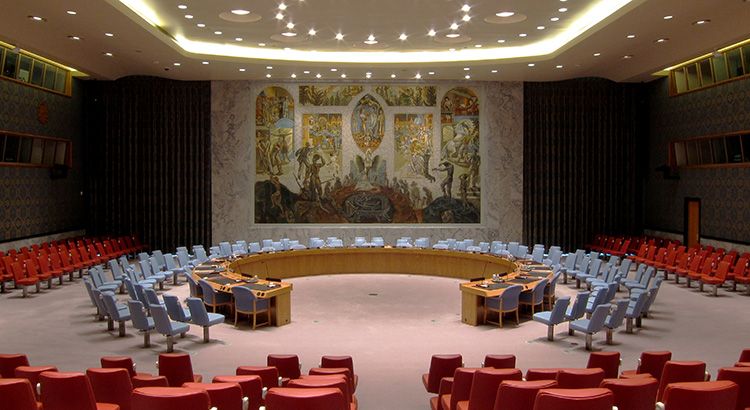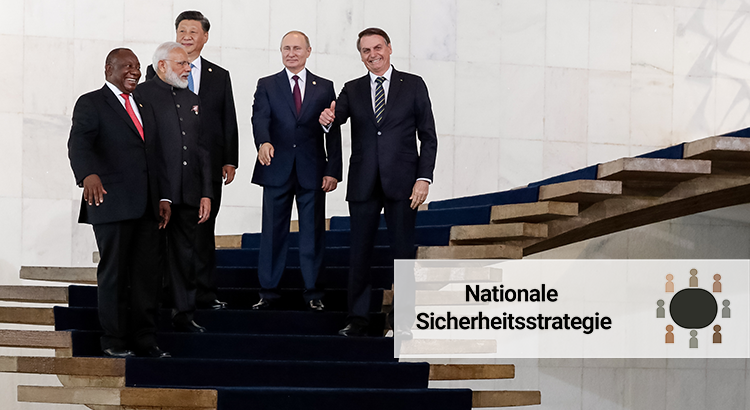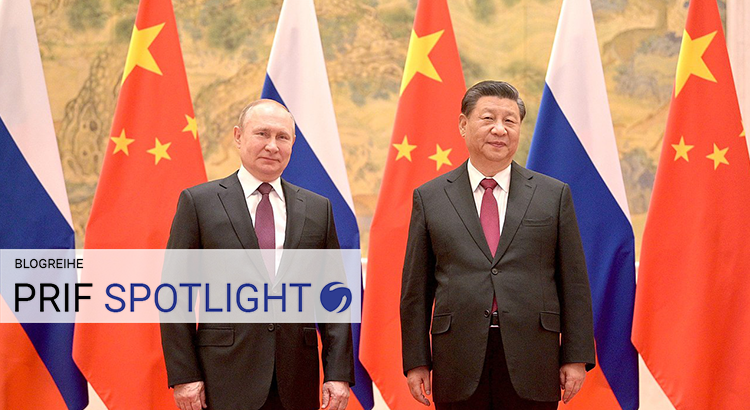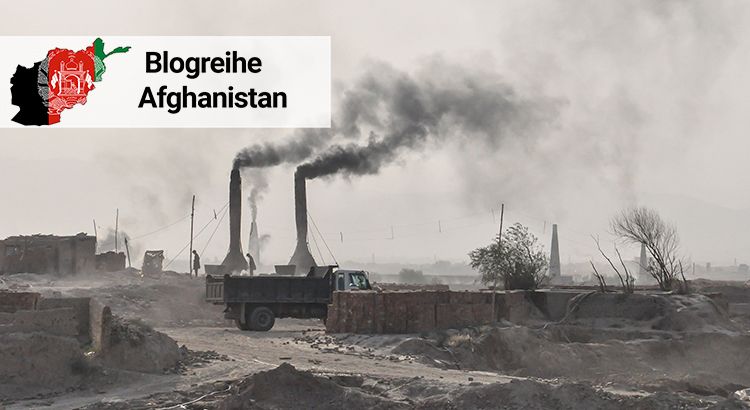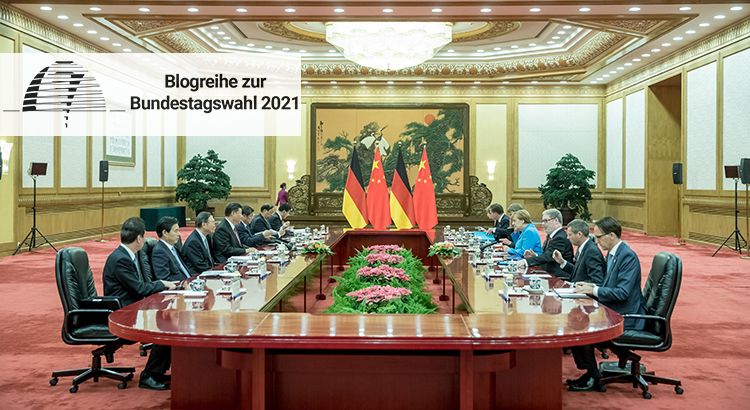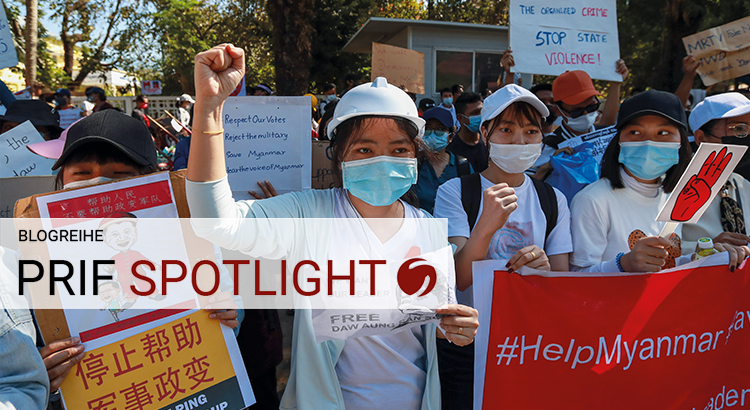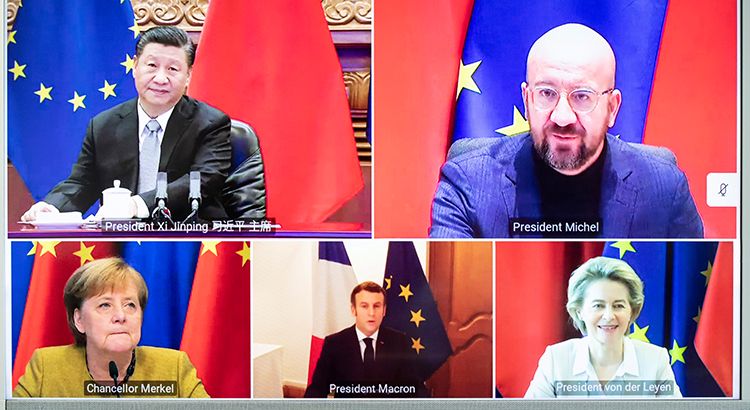Author: Pascal Abb
Dr. Pascal Abb ist Koordinator der Forschungsgruppe „Regimewettbewerb“ und wissenschaftlicher Mitarbeiter am PRIF mit Schwerpunkt China. Er betreibt aktuell ein Forschungsprojekt zu den Auswirkungen der Belt-and-Road-Initiative auf Konfliktstaaten. // Dr Pascal Abb is Coordinator of the Research Group “Regime Competition” and Senior Researcher at PRIF with a focus on China. He is currently conducting a research project on the impact of the Belt and Road Initiative on conflict states.
Im UN-Kontext wäre es kontraproduktiv, einen globalen Konflikt zwischen Demokratien und Autokratien zu forcieren, argumentieren Pascal Abb, Hanna Pfeifer und Jonas Wolff in einem Standpunkt für die Zeitschrift Vereinte Nationen.
Gemeinsam gegen die bösen Autokratien? Zu den Fallstricken demokratischer Allianzbildung als Pfeiler einer zukünftigen deutschen Sicherheitsstrategie
In Reaktion auf den Aufstieg Chinas und das zunehmend selbstbewusste Auftreten autoritär verfasster Staaten hat sich auch im deutschen außenpolitischen Diskurs das Bild eines neuen „Systemwettbewerbs“ verfestigt. Die Vorstellung, dass sich die Demokratien dieser Welt im Angesicht bedrohlicher Autokratien zusammenschließen müssen, hat durch den russischen Angriffskrieg auf die Ukraine weiter Nahrung erhalten. Die Bundesregierung wäre allerdings schlecht beraten, diese Idee einer Zweiteilung der Welt in gute Demokratien und schlechte Autokratien zur Grundlage ihrer Nationalen Sicherheitsstrategie zu machen.
Chinas Belt-and-Road-Initiative ist ein Sicherheitsproblem – aber nicht so, wie oft gedacht
Als Teil der „Zeitenwende“ in der deutschen Sicherheits- und Verteidigungspolitik soll gegenwärtig und erstmalig eine nationale Sicherheitsstrategie erarbeitet werden. Sicherheit wird darin umfassender als bislang gedacht, entsprechend vielfältig ist daher auch das Bouquet der Einzelthemen, die im Rahmen der Strategiefindung behandelt werden sollen. Wenig überraschend zählt auch China bzw. dessen Aufstieg dazu; interessanter ist hier der spezifische Kontext der „Belt-and-Road“-Initiative (BRI), durch die Peking umfangreich in die Infrastruktur von Drittstaaten investiert. Dieses Engagement berührt tatsächlich auch die deutsche Sicherheit, allerdings indirekt und auch nicht nur negativ. Eine erfolgversprechende Politik sollte die BRI deshalb nicht pauschal verdammen, sondern Vor- und Nachteile nüchtern analysieren.
Nicht viel Liebe in Zeiten des Krieges: Sicherheitspolitik als neues Konfliktfeld in den europäisch-chinesischen Beziehungen
Der jüngste EU-China-Gipfel am 1. April fand unter dem Schatten des Krieges in der Ukraine statt. Beide Seiten bezogen sehr unterschiedliche Positionen. Europa hat den Krieg klar als rechtswidrige Aggression verdammt, Russland entsprechend sanktioniert und ist aktuell dabei, seine Sicherheitspolitik komplett neu aufzustellen. China hingegen ist offiziell neutral, betont aber weiterhin die enge Partnerschaft mit Russland und übernimmt teils dessen Kriegspropaganda. Damit verschiebt sich die bilaterale Agenda weiter weg von wirtschaftlichen Themen und rührt inzwischen sogar an das Feld der europäischen Sicherheitspolitik, was neben den vielen anderen Irritationen der letzten Jahre für weiteren Konfliktstoff sorgt.
Frieden am Ende? Die Eskalation im Russland-Ukraine-Konflikt und die Rolle der Friedenspolitik
Russland hat den Krieg begonnen. Der Angriff auf die Ukraine und die Anerkennung der „Volksrepubliken“ Donezk und Luhansk sind ein offener Bruch des Völkerrechts und eine machtpolitische Aggression gegen die bestehende Weltordnung. Die unmittelbaren Opfer sind die Menschen in der Ukraine. Die Kritik und Erbitterung des Westens ist groß. Ebenso die Enttäuschung über das Scheitern der eigenen Deeskalationsbemühungen. Ist mit dem Frieden auch die Friedens- und Sicherheitspolitik am Ende? Und mehr noch: War der Kurs der Vergangenheit, auf Diplomatie, Ausgleich und gemeinsame Sicherheit zu setzen verkehrt, wie jetzt von vielen behauptet wird?
A new Sino-Russian Entente? The limits of cooperation on Ukraine and beyond
As the military standoff over Ukraine continues, both sides have attempted to mobilize international support for their respective positions. While Kiev has received increasingly robust NATO backing, Russia has turned to its “strategic partner” China. A recently published joint Sino-Russian statement has fueled speculation that Beijing could weigh in on Moscow’s side and perhaps even lead to the resurgence of competition between ideological blocs in world politics. However, diverging interests on Ukraine limit such cooperation in the short term. A long-term alignment between both sides is a more serious possibility, but can still be influenced by Western policy choices.
China’s ‘constructive involvement’ in Afghanistan: an alternative to Western peacebuilding?
The Western withdrawal from Afghanistan and the following collapse of the local government to the Taliban has left many international observers to ponder who might fill the resulting vacuum. Many eyes have turned to China, which had already engaged the Taliban in political dialogue, is open to formal recognition of the new regime, and is also one of its more plausible aid donors. Beijing has also increasingly touted an alternative to the Western program of liberal peace- and statebuilding that failed in Afghanistan, focused on developmental objectives and tying into Chinese strengths and interests especially under its global “Belt and Road Initiative” (BRI).
Deutsche China-Politik zwischen Partnerschaft und Rivalität
Chinas scheinbar unaufhaltsamer wirtschaftlicher Aufstieg hat inzwischen auch die deutsche Parteipolitik erreicht, und die Frage nach dem zukünftigen Umgang mit der neuen Supermacht als bedeutendes Wahlkampfthema etabliert. Die deutschen Parteien begegnen dieser Herausforderung, indem sie 2021 erstmalig ausgewiesene China-Politiken skizzieren. Das ist neu: noch 2017 fanden sich nur vereinzelte Erwähnungen von „China“ in den damaligen Programmen, und ausschließlich in unspezifischen Kontexten wie dem Umgang mit autoritär verfassten Staaten. Wie ein Vergleich der aktuellen Programme zeigt, ist China inzwischen nicht nur eines von vielen außenpolitischen Themen, sondern sogar wichtiges Element ihrer allgemeinen weltanschaulichen Positionierung.
China in transitionary Myanmar. Challenging paths to democratization and peace
The recent military coup in Myanmar reversed a decade-long experiment towards incremental political liberalization. At the same time, it also brought China’s engagement there back into the spotlight, and initial Chinese reactions led to suspicions that Beijing had welcomed or even aided the return to military rule. However, the reality of China’s role in Myanmar’s democratic transition and simultaneous peace process is far more complicated, and instructive for its overall engagement in conflict societies.
The EU-China Investment Agreement: a sign of political naïveté or strategic autonomy?
The recently-concluded EU-China Investment Agreement has attracted severe criticism, with many commenters focusing specifically on the supposed naïveté of concluding a separate agreement with China instead of pursuing a joint approach together with the incoming Biden administration. However, this approach is in line with the EU’s stated desire to achieve a greater strategic autonomy, and in fact a sensible reaction to the uncertainty that has marked international politics since the Trump era.
